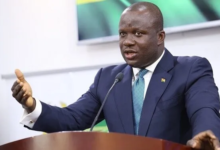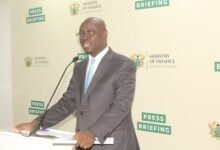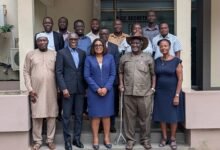Environmental experts reviewing progress made in ratification of Kigali Amendment in Accra

The Acting Director of the Environmental Protection Agency (EPA), Mr John Pwamang has entreated countries that have not ratified the Kigali Amendment to the Montreal Agreement to complete the process to favour the global environment.
The Kigali Amendment is a landmark agreement adopted in October 2016 to control the consumption and production of climate damaging hydro fluorocarbons (HFCs), a synthetic chemical widely used in the cooling industry.
It mandates a global phase-down of HFCs to about 15 per cent of their current levels of consumption.
According to Mr Pwamang , 81 out of the 196 countries had signed on to the Montreal Agreement, and had complemented the ratification.
He was speaking at the opening of a five-day workshop organised by EPA and United Nations (UN) Environment Programme with support from Multilateral Fund in Accra yesterday.
Aimed at reviewing progress in implementation of activities to support the early ratification of the Kigali Amendment, it drew officers from Western, Eastern, Northern and Southern regions of the Africa Anglophone Network.
Mr Pwamang explained that, “under the amendment, a global resolution to reduce green house emission like the phasing down of the use of HFC in refrigerators, air conditioners and related facilities by 80 per cent were key to avoiding 0.4 degrees Celsius of global warning by the end of the century while continuing to protect the ozone layer.
“It also opens a window to redesign cooling equipment to make them more energy efficient thereby enhancing energy efficiency, some may wonder why the activity was important, thanks to the success of the Montreal Protocol millions of cases of skin diseases like skin cancer and cases of eye cataracts have been avoided.”
He outlined some efforts made by the EPA to support the implementation of the agreement as the training of 33 technicians from 11 well-established air conditioning units in the conversion of existing R22 based air condition (A/C) units to run on Hydrocarbon R290 and expressed gratitude to the private sector for their support and assistance to introducing alternatives to HFCs in developed and developing countries.
The Deputy Regional Director of UNEP Africa Office, Frank Turyatunga urged participating countries to reflect on important issues of common concern that required attention, as countries continued with efforts to phase out the reminder of ozone depleting substances and to mitigate climate change.
“A meeting like this one is important for ozone officers to exchange information on experiences learnt during the implementation of the protocol as well as a good opportunity to discuss problems that may have been experienced and to consider solutions, I encourage participants to tell some success stories after the implementation of the programme other than always talking about the negatives,” he said.
BY BENEDICTA GYIMAAH FOLLEY






